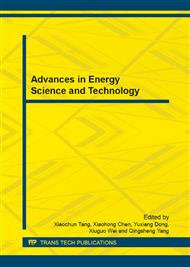p.1433
p.1439
p.1443
p.1447
p.1451
p.1455
p.1461
p.1467
p.1471
Pattern of China’s Eco-Tourism Resources in Low Carbon Economy
Abstract:
Developing the eco-tourism in low carbon economy has becoming an appeal for all sectors of the society. To develop a low carbon economy, as well as construct low carbon cities, is a convenient and scientific way to starting from the construction of low carbon scenic spot, this concept should put deep into the exploitation and construction of scenic spot. As direct participants of tourism activities, tourists have no doubt play a key role in the construction of low carbon scenic spot and achieving the goals of low carbon in scenic area. At present, low carbon tourism is in fact more to reflect a kind of energy conservation and emission reduction in concept, for which it is a response to ecological tourism and sustainable tourism. There has no specific and quantifiable index to qualify as the measurement and evaluation standard of low carbon scenic spot. It is thus clear that to construct low carbon scenic area that we should put forth effort to strengthening tourists’ low carbon tourism consciousness.
Info:
Periodical:
Pages:
1451-1454
Citation:
Online since:
February 2013
Authors:
Keywords:
Price:
Сopyright:
© 2013 Trans Tech Publications Ltd. All Rights Reserved
Share:
Citation:


